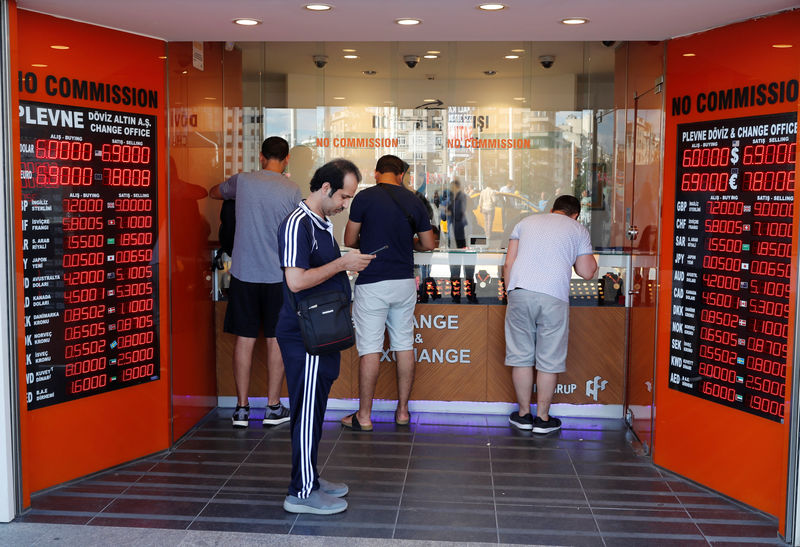(Bloomberg) -- The Turkish lira rallied for a second day after the banking regulator eased trading restrictions for foreign investors, a move that could help stem the capital flight that’s made the currency one of the worst performers in emerging markets this year.
The lira jumped as much 1.4% to 7.5134 against dollar after the watchdog increased the amount of currency swaps and derivative deals that local banks can carry out with foreign counterparts.
When buying lira from clients abroad, Turkish banks’ swaps and derivative positions can reach as much as 10% of their equity, up from 1% previously, the regulator said in a decree published Friday. When selling liras, the limit has been increased to 2% for transactions that will mature in seven days, 5% for those coming due in 30 days and 20% for those that mature in one year.
The decision is fueling speculation that policy makers are starting to unwind a slew of trading caps that have made it virtually impossible for investors abroad to hedge and finance their positions in Turkish assets. The clampdown reached an apex in May, when regulators briefly banned local banks from trading with Citigroup Inc (NYSE:C)., UBS Group AG (SIX:UBSG) and BNP Paribas (OTC:BNPQY).
The limits were first introduced after a currency crisis in 2018 and were designed to stand in the way of investors betting against the lira. But they’ve given way to periodic liquidity crunches that drove overnight borrowing costs to as high as 1,000%, and forced foreign investors to dump their bond and equity holdings.
Faced with an unpredictable trading environment, non-resident investors have pulled more than $13 billion out of the bond and stock market this year. Their share in local-currency government debt has dropped to a record low of less than 4%.
“Encouraging moves - suggests the Turkish authorities finally get it,” said Timothy Ash, a strategist at BlueBay Asset Management in London. “The answer to foreigners trying to sell lira is not make it harder to sell, as this just encourages people to get out while they can and will deter them coming back.”
The decision follows a surprise interest-rate hike on Thursday that is also shoring up confidence in the lira. The currency has borne the brunt of a monetary easing cycle that drove borrowing cost below inflation and fueled demand for dollars in the local economy.
The lira is still down more than 20% against the dollar this year, the most in emerging markets after the Brazilian real.
